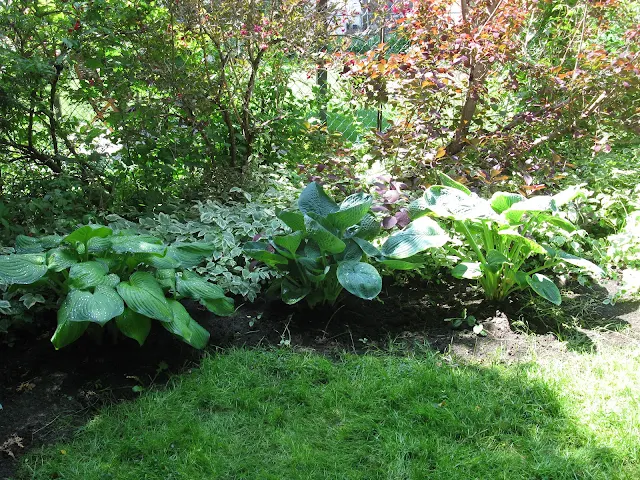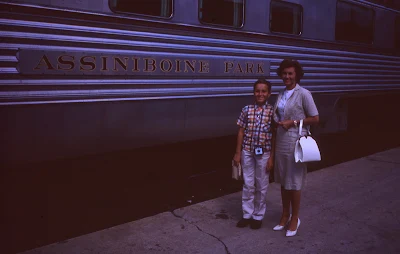
On television, a few days before the coronation of King Charles III, there was a programme on Charles's idea of a model village, Poundbury, in the south of England. This community was designed by Charles in the 1980s to highlight his concept of the perfect community; for instance, everything is within walking distance and cars are restricted or banned. These are all fairly commonplace ideas today but, when imposed by someone who has more privileges than any of us, it is a bit galling: it is the limited and privileged vision of someone who has had it all and now thinks he can impose his vision on other people, for their betterment. I was repelled by Poundbury, it seemed to me to be a place of social control made acceptable with the inhabitants' consent; they like living in this place or they'd live somewhere else. It's a community for the managerial class. There are rules and regulations for everything, enforced by a town council, and reinforced with the peer pressure of a homogeneous population.
This programme on Poundbury immediately reminded me of The Village, the setting for most of the episodes of The Prisoner television series broadcast in 1967-1968; this was a very popular programme, disturbing, dystopian, and Orwellian, starring Patrick McGoohan. The Village is a place for containing people who know too much regarding British intelligence; they have been warehoused in The Village, put out to a benevolent pasture, kept alive and in a comfortable prison life, but without bars, without cells; if you behave and accept life in The Village you will do well there. Meanwhile, someone like Number Six, played by Patrick McGoohan (none of the inhabitants of The Village have names, they are referred to by a number), is tolerated and even indulged. What the authorities ostensibly want from Number Six is to know why he quit his job at MI5 or MI6. But this is really beside the point, the mission of his captors is to break him down, make him lose his own thoughts, make him into a number, make him believe the concept of reality they want him to believe, as happened to Winston Smith in Orwell's 1984.
The other comparison with Poundbury is the 15 Minute City, another form of potential social control that seems, on the surface, to be benign and even a lovely place to live one day. However, this is an example of urban planning gone wrong, it suggests that the best community is one in which all of the necessities of life -- grocery stores, pharmacies, places of work, schools -- are easily reached within a fifteen minute walk or bicycle ride. It almost sounds good except that many of us have always lived in a place where everything is available within a fifteen minute walk; but we didn't talk about it or try to make it something it isn't, it was the organic expression of city life, the way we live, and for many people it still is.
Where I live everything is within walking distance, it always has been; that is city life, that is living in a community that is part of a neighbourhood that is part of a borough that is part of a city. No one feels contained by where they live, it is nothing special; when it becomes something "special", needlessly part of a new urban planning idea, then it takes on other qualities; there is a dark, shadow side to all of this happiness and convenience that is imposed on us. Post-Covid many people are working from home, and some people have quit their jobs because they no longer want to work in an office, or live in the city where their workplace is located. Urban planning is trying to re-invent the wheel, and it is coming out square and not round; if you oppose their idea of the future city you are some kind of conspiracy nut, but that is just their way of dealing with anyone who disagrees with them. An extension of the 15 Minute City is the fenced off gated communities already existing in the United States, with a guard at the entrance. You walk everywhere and if you have a mobility problem you will get around on a golf cart, but there are consequences to living in the 15 Minute Gated City, or The Village . . .
Do we really want to live in this type of place? There will be no room here for the exceptional, the eccentric, the rebellious, the odd ball who lets his grass grow long and his ramshackle house unpainted. Whether it is Poundbury or The Village or the 15 Minute City these are places for the unimaginative managerial class, the values of this class will control all of us. And, no doubt, fences will be put up around those other unfortunate communities, the homeless (now referred to as the "unhoused") who inhabit parts of many North American cities. No, they are not "unhoused", they are homeless with all of the pathos, suffering, and terrible insecurity this word suggests; to be "unhoused" is an antiseptic word that denies the emotional meaning of living on the street.
And what of the arts, spirituality, free thinkers, anarchists or nihilists, odd balls and misfits, the angry, the grieving, or the ecstatic; what if you let your place deteriorate, will you be isolated by peer pressure or a council investigation? This is not a place of barking dogs, crowded streets, the smell of someone's cooking, living cheek to jowl with your neighbours so you can hear them fighting, laughing, talking, humanity as lived by the poor, the artist class, the thinkers, or the way things were in the past that many immigrants to North America experienced; immigrants produced ambitious people who worked hard to make money and move up the social ladder, and they even improved society with jobs and philanthropy; this is not included or suggested, or can even exist in a place like Poundbury or The Village, there is nothing suggesting social mobility, creativity, or freedom of thought in those places; they are retirement living, places of stasis.
A recent newspaper article on Glasgow has a subtitle, "Scotland's biggest city is a brawny celebration of industry, ingenuity and individualism", things not found in Poundbury, the Village, or the 15 Minute City. Montreal is a city of neighbourhoods, each distinctive, just as New York City is a city of boroughs, all different and unique -- Manhattan, the Bronx, Brooklyn, Queens, and Staten Island -- just their names resonate with qualities of distinctiveness, ambition, vibrancy, and life. There is a totalitarian feeling to Poundbury, a place that is a reflection of King Charles's concept of an ideal society; but what does he know about how average people live or what they aspire to? It's a good thing he is only a king and has no real power, and being king he will be limited in what he is allowed to say about the future of society.
Be seeing you.
.JPG)
.JPG)
.JPG)
.JPG)
.JPG)
.JPG)
.JPG)
.JPG)
.JPG)
.JPG)





























.jpg)
















.JPG)


